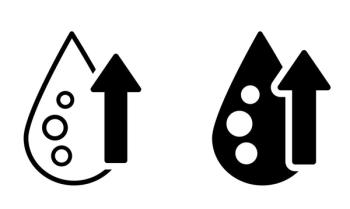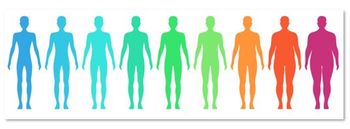
ICAD: Risk Factors Total a Score to Predict Dementia Risk
MADRID -- There's a simple way to calculate a middle-age patient's eventual dementia risk, on a scale of one to 15, according to Swedish investigators.
MADRID, July 17 -- There's a simple way, to calculate a middle-age patient's eventual dementia risk, on a scale of one to 15, according to Swedish investigators.
The risk score highlights the role of vascular factors in the development of dementia 20 years hence, said Tiia Ngandu, Ph.D., of the Karolinska Institute in Stockholm.
"It may help to identify individuals who can benefit from lifestyle changes and drug therapies," she said in a poster presented at the International Conference on Alzheimer's Disease and Related Disorders here.
The dementia risk score is still being tweaked to validate and refine its accuracy, Dr. Ngandu said. The score was developed by following 1,409 participants in the Cardiovascular Risk Factors, Aging and Dementia (CAIDE) project. The participants were examined at a mean age of 50 and then were re-examined 20 years later to assess dementia.
In order to figure a score:
- For patients younger than 47, add 0 points to the risk score; for those 47 to 53, add three points; for those older than 53, add four points.
- For patients with more than 10 years of education add 0 points; for those with seven to nine years of education, add points; for 0 to six years of education, add three points.
- For men add a point; for women add 0 points.
- For a systolic blood pressure greater than 140 mm Hg, add two points to the score; for blood pressure less than 140 mm Hg, add 0 points.
- For a body mass index of 30 mg/m2 or greater add two points to the score; for a body mass index less than 30 mg/m2, add 0 points.
- For a total serum cholesterol score of 6.5 mmol/l (251 mg/dL or higher, add two points; for those having ever had less than 6.5 mmol/l.; add 0 points.
- For those who exercise for 30 minutes or longer at least twice a week, add points; for those who are inactive add one point.
Dr. Ngandu said that patients who score 0-5 on the scale have a 1% risk of developing dementia in the next 20 years. In the CAIDE study 401 people scored 0-5 and four of them developed dementia.
Patients with scores of 6-7 have a 1.9% risk of dementia in the next two decades.
Patients with scores of 8-9 have a 4.2% risk of dementia.
Patients with scores of 10-11 have a 7.4% risk of dementia.
Patients with scores of 12-15 have a 16.4% risk of dementia in the next 20 years.
When using the cutoff of nine or more, the dementia risk score had a sensitivity of 0.77, a specificity of 0.63, a positive predictive value of 0.09, and a negative predictive value of 0.98.
Dr. Ngandu said that the risk scores are based on a snapshot of these individuals and did not attempt to assess what happens if patients are treated to control cholesterol levels or blood pressure or if they change their lifestyle to increase activity.
Nevertheless, neurologist Guy McKhann, M.D., of Johns Hopkins, who chaired a press briefing at which the risk score was discussed, commented that he thought it "is ready for use now as a tool of assessing a person's risk." He was not involved in the study.
William Thies, Ph.D., vice president for medical and scientific relations at the Alzheimer's Association, commented "We know that heart health and brain health are intimately connected. Because the dementia risk score is tied to heart health risk factors and others that we know influence Alzheimer's risk, including age and education level, it is a logical approach and a good first step to predicting someone's risk of dementia."
Newsletter
Enhance your clinical practice with the Patient Care newsletter, offering the latest evidence-based guidelines, diagnostic insights, and treatment strategies for primary care physicians.

































































































































